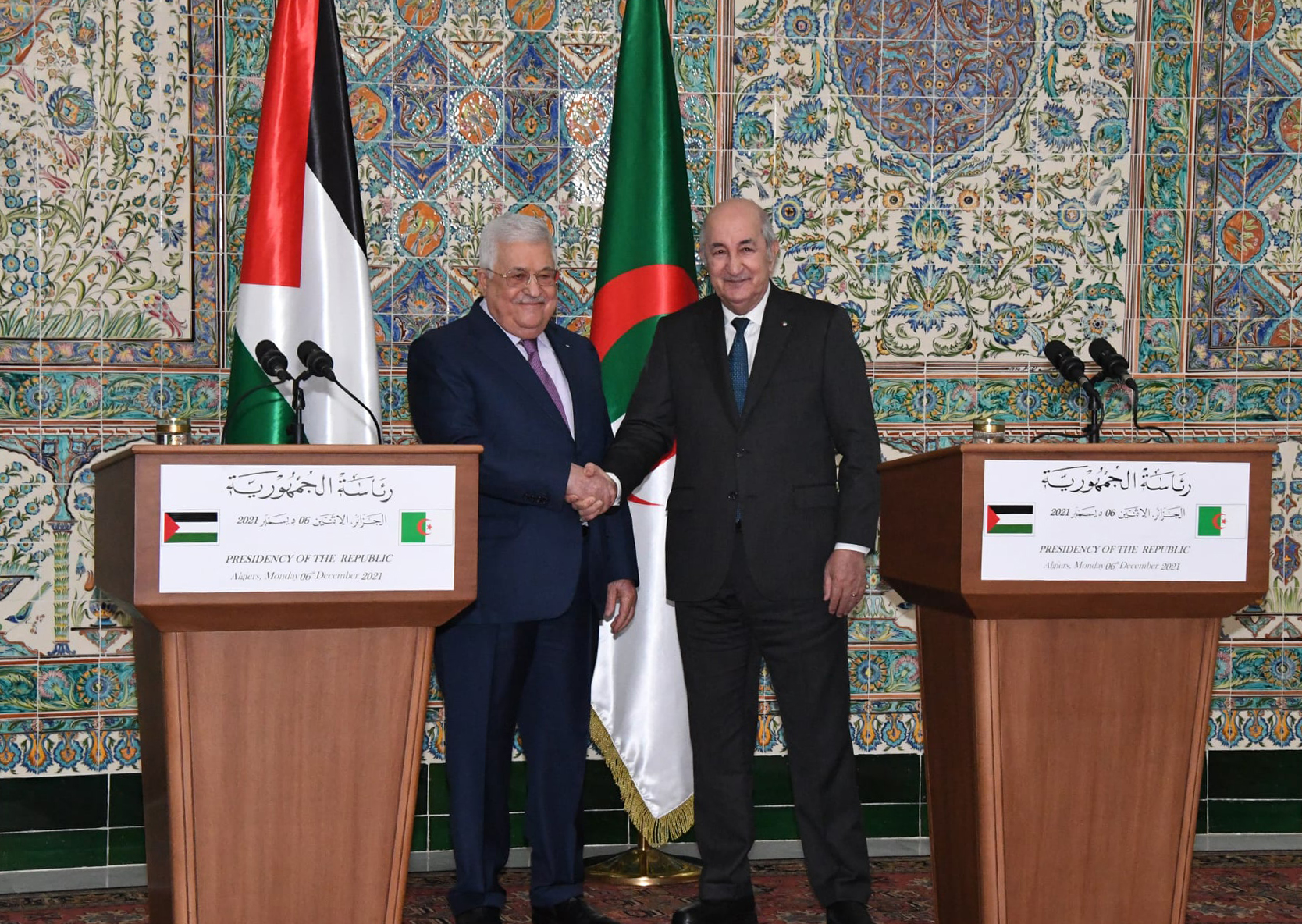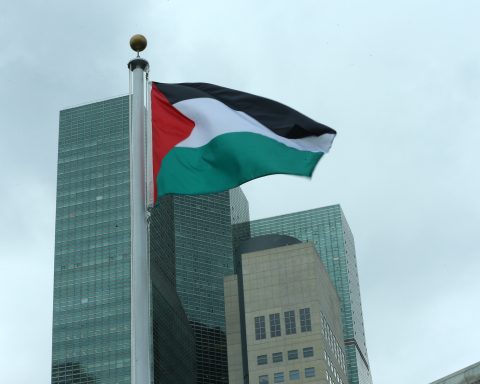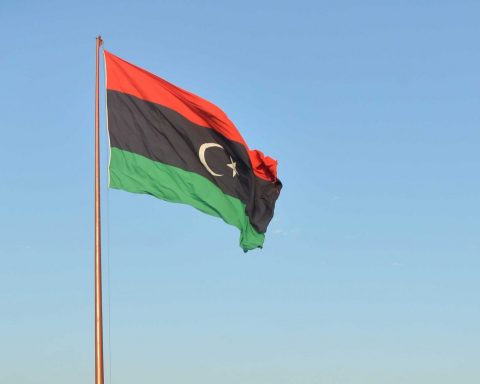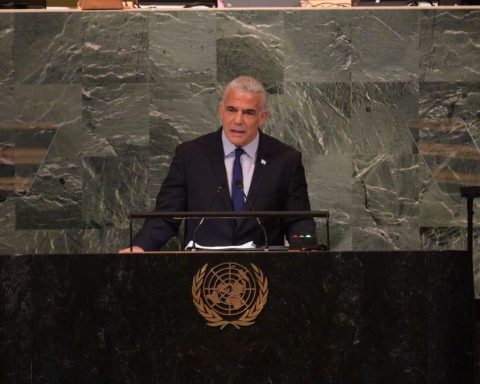Ahead of his reception of the Palestinian President Mahmoud Abbas, who paid an official visit to Algeria this week, Algerian President Abdelmadjid Tebboune vowed $100 million in aid for the Palestinian people, along with his invitation to host the Palestinian factions to launch intra-Palestinian talks to end a decade and a half of internal split. Both rivals, the Palestinian Authority and Hamas, welcomed the move and voiced a willingness to tackle it positively.
The Algerian call comes months ahead of a momentous political event the north African country will host in March 2022, the Arab League summit. Hence, many critical issues will be discussed in that meeting, most importantly: the normalization agreements that four Arab countries – the UAE, Bahrain, Sudan, and Morocco – signed with Israel; the return of the Assad regime’s seat to the Arab League; the Palestinian cause, and the Algeria-Morocco political row.
During president Abdelaziz Bouteflika’s era, Algiers had embraced a passive or home-centered diplomacy for almost three decades. However, with the rise of President Tebboune, who came via democratic means, Algeria has chosen a pro-active foreign policy, highly manifested in fostering ties with Turkey, having a greater role in the Libyan political game, and adopting a pro-Palestine approach in the African Union and the Arab League, mainly after the pan-African umbrella granted Israel an observer status.
However, many domestic and geopolitical dynamics drove Algiers to spearhead a pro-Palestine approach these days and pledge generous financial support to the Palestinians at a time when the country’s economy, like much of North African countries’ economies, is highly exhausted because of the effects of the COVID-19 pandemic.
Firstly, the Palestinian cause constitutes something beyond a mere political interest for the Algerian people. It comes at the heart of their national identity and at the core of any leader’s political legitimacy, given the fact that the Algerian pro-independence struggle coincided with the rise of the Palestinian anti-occupation movement, with the Algerian steadfastness and victory being seen as a model for Palestinians, not to mention that the Algerians themselves were eager to see their anti-France model replicated in the occupied territories. It is easy to notice the Algerian people’s huge popular support in the pro-Palestine slogans, banners, and flags scattered until this very moment in the country’s streets, universities, and sports stadiums.
The second dynamic has something to do with the half-democratization process the country has seen in the last few years after the Algerian people took to the streets and forced the long-serving president, Abdelaziz Bouteflika, to resign. The current president, who came through transparent and free elections, will remain keen to adopt a foreign policy in line with his constituency’s aspirations given the fact that the Algerian financial support came months after the Israeli aggression against Gaza, where Israel slaughtered dozens of Palestinians in the blockaded enclave. This has been exacerbated by Israel’s ongoing attacks on Jerusalem and the Al-Aqsa Mosque, which are deeds that definitely provoke Arabs and Muslims worldwide.
The recent developments on the Algerian border amount to the third dynamic behind the country’s proactive diplomacy on Palestine. The Algerian stance comes after neighboring Morocco signed a normalization deal with Israel that culminated in a defense-security agreement in November. Inviting the Palestinian factions, including Hamas and the resistance groups, to visit Algeria comes as a bid to counterbalance that deal in light of the security dilemma the North African country came under. Hence, the Israeli Foreign Minister gave anti-Algeria remarks from the Moroccan territories, which highly outraged the Algerians. Hereafter, Algeria will eventually have good ties with the Palestinian resistance groups in an approach known as “defensive neorealism,” where we find sovereign states engaging more with non-state actors for the sake of protecting their national security.
Also, as a fourth reason, Algeria acted in a competitive way with Egypt in terms of having an impact on the Palestinian cause as the two countries lately have contradictive views regarding the tension hitting the neighboring countries of Libya and Tunisia. At the time, Egypt was backing warlord Khalifa Haftar in eastern Libya, and Algeria was standing against any bid to overthrow the Tripoli government by force. Also, Algeria was prompted to see Tunisia’s Ennahda included in any political process in the country, while the Egyptian view was denigrating Ennahda as a branch of the Muslim Brotherhood outlawed by Egypt. Algerian pro-active diplomacy on Palestine is pulling the rug from under the Egyptians, mainly when it comes to Palestinian internal reconciliation, which Cairo failed to accomplish over a decade and a half.
Arabs have gotten used to saying that it is only the Palestinian cause that raises or lowers your influence in the MENA region. Therefore, reviving Algerian diplomacy and assuming a greater role in the region can be highly achieved via more engagement and support for the Palestinian cause. However, Algerians should learn the lesson and know how to pressure the Palestinians to come together for eternal reconciliation. The cause cannot simply afford to have them separated for another decade and a half.














